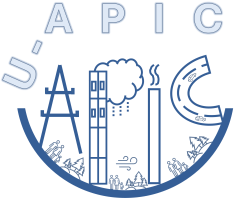U-APIC: Urban Air Pollution and Interaction with Climate
Background:
Urban environment plays a unique and critical role in the Earth system. Air pollution and atmospheric chemistry can interact with urban meteorology and emissions in a complex way, which has not been fully understood. Urban is also the most populated region where air pollution can exert significant adverse impacts on human health. Moreover, different urban regions may have their own characteristics for air pollution and interaction with climate, which requires international collaboration and coordination. Thus, this proposed U-APIC activity aims to address this imperative topic.
While ALPACA, part of the PACES activity, looks at urban air quality in the Arctic, currently IGAC has no activity dedicated to general urban air quality and
interactions with unique urban climate/weather environments. This brings opportunities for cross-activity collaborations between existing IGAC
activities and the U-APIC activity.
Overarching goals:
Our goals are to leverage both observational and modeling capabilities to improve the understanding and quantification of urban air pollution affected by urban emissions and climate/weather and associated feedback to urban climate/weather as well as the impacts on public health, and to provide useful scientific basis and guidance to enhance policy making and benefit the public. This U-APIC activity is unique on several aspects:
(1) filling in knowledge gaps of cross-scale complex chemistry-climate interactions in unique urban environments under climate change; (2) connecting urban air pollution and climate/weather extremes to public health; (3) advocating the
engagement with the society (e.g., local community and stakeholders) to promote actionable sciences.
Science questions:
(1) What are the urban emissions (particularly biogenic emissions) and associated impacts on air pollution under climate change, urbanization, urban climate adaptation, decreasing anthropogenic sources, and extreme events?
(2) How are atmospheric chemistry processes affected by urban emissions and meteorology compared to rural and remote areas, and what is their feedback to urban climate/weather?
(3) How does urban air pollution interact with surrounding rural environments and long-range transported (inter-regional and inter-continental) pollution?
(4) How do urban air pollution-meteorology interactions change across spatial scales, ranging from micro-scale chemistry-turbulence interaction to global chemistry-climate interplay?
(5) What are the effects of urban air pollution and climate extremes on public health?
(6) What are the effective pathways and actionable solutions to mitigate adverse impacts from urban air pollution and climate extremes, particularly through engaging with local community and stakeholders, capacity building, and educational outreach?
For more information, see here!
We are currently actively expanding our community and are interested in forming working groups. If you are interested in contributing to the U-APIC activity, please email us at u-apic@igacproject.org
Sign up for the mailing list here or email u-apic@igacproject.org with your name, institution, and email address to sign up.
